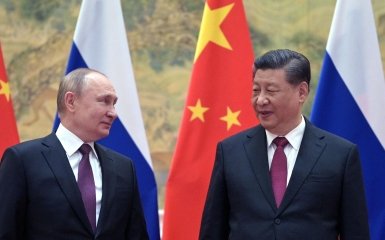This week, when the Russian president will meet with Xi Jinping in Beijing. The "friendship" between the two supreme leaders of the authoritarian world will once again be put on display. Vladimir Putin's state visit will be his 43rd meeting with his Chinese counterpart.
The economic "friendship" of China and Russia can shake the world
Economic ties between the two sides are thriving but facing pressure from Western sanctions, which are expected to be a significant topic of negotiations. According to Chinese customs, two-way trade last year was $240 billion, up 26% from a year earlier, with China supplying goods ranging from cars and industrial equipment to smartphones, and buying billions of dollars worth of Russian energy exports. .
According to analysts, the developing economic ties are one of the most evident signs of China's desire to change global geopolitics through trade in its direction and at the expense of the United States.
China claims that it does not provide Russia with lethal weapons. However, it has become a vital supply channel for the Russian defense industry.
China is now Russia's most important partner, buying its raw materials and supplying goods, including for the conduct of hostilities, says Elina Rybakova, a senior researcher at the Peterson Institute for International Economics.
Philip Ivanov, an analyst at the Asia Society Policy Institute, emphasizes that Beijing foresees long-term competition and confrontation with the West. To compensate for this, it is investing in its economic relations with non-Western countries. Many Russian business people are also targeting the Chinese market, and governments on both sides support this boom.
Activation of friendship between China and the Russian Federation
According to Ivanov, economic ties between China and Russia have grown since 2014, when Russia annexed Crimea and suffered the first Western sanctions, and Xi began pursuing a more assertive foreign policy. But after the full-scale invasion in 2022, this process accelerated. China not only increased exports to its neighbor, but also bought Russian oil. Last year, the Russian Federation overtook Saudi Arabia in supplying the Chinese market.
According to journalists, in 2023, as defined by EU trade rules, 60% of Russian imports of high-tech dual-purpose goods will come from China. However, almost all imported technologies used in Russian weapons are of Western origin.
According to Andrea Kendall-Taylor, director of the transatlantic security program at the Center for a New American Security, Moscow's growing dependence on Beijing is of little concern to the Kremlin. "It's a trade-off they're willing to make to work with a partner who doesn't threaten their internal stability and has similar views on how the world should be ordered."
In return, Beijing gains valuable access to natural resources and internal trade routes away from the Indo-Pacific sea lanes, which are more vulnerable to US pressure. "Deliberately and due to a coincidence of circumstances," Ivanov believes. China and Russia strive to create a multipolar world where power will be dispersed. The most "important characteristic of this world is that the power of the United States is blurred."
Analysts believe the Chinese leader is using a series of vague slogans and rhetoric as code for his plans for a future in which China will reclaim its historic imperial-era grandeur, tacitly supported by countries opposed to "US hegemony".
For Chinese scientists, the stress test of this new outlook is the war in Russia and Ukraine. According to Chinese scientists, if the US "loses" the war in Ukraine, it will further weaken its influence.




